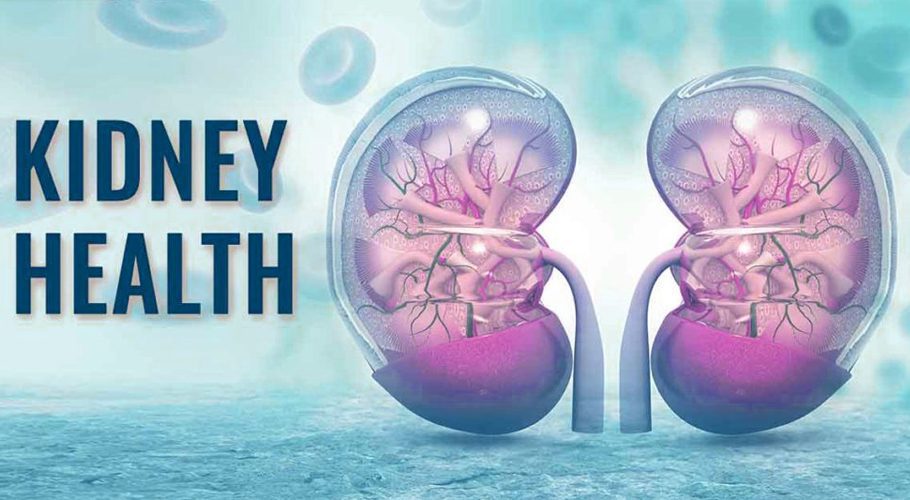Our minds absorb massive amounts of information every day, and our bodies execute millions of acts. Living in our fast-paced environment makes it extremely simple to ignore your body’s cues. And the repercussions of failing to communicate and respond to these signals can be disastrous.
Also read: 10 foods that can help you lose weight
Here is a list of symptoms that suggest your kidneys aren’t performing correctly. Everyone needs to check as to how many of these messages have your body sent to you?
Also read: Nitrogen-containing compound in Tomato, Potato may have cure for Cancer
1. Trouble Sleeping
Toxins cannot depart the body through urine and linger in the blood when your kidneys are not working correctly. Toxin levels are high, making it difficult to sleep. As a result, getting less sleep increases the likelihood of renal function deterioration.
Warning: People with Chronic Kidney Disease are more likely to have sleep apnea. Sleep apnea is a condition that causes one or more pauses in breathing while you sleep. These gaps might range anything from a few seconds to a minute. Normal breathing resumes with a loud snort after each break. Constant snoring indicates that it is time to contact a doctor.
2. Headaches, Fatigue, And General Weakness
Vitamin D is converted in our bodies by healthy and properly functioning kidneys to maintain strong bones and create a hormone called Erythropoietin (EPO). This hormone is crucial for the formation of red blood cells. When the kidneys aren’t working correctly, they create less EPO. The loss of red blood cells (which carry oxygen) causes the fast weariness of your muscles and brain.
Warning: Anemia is prominent in persons with Chronic Kidney Disease. Anemia may develop when a person’s kidney function is between 20% and 50% of normal. If you’re receiving adequate rest and sleep but still suffering fatigue, low energy levels, and general weakness, you should see your doctor right away.
3. Having Dry And Itchy Skin
Healthy kidneys do an incredible job by eliminating waste and surplus fluid from the circulation, assisting in producing red blood cells, and ensuring that your body has the correct quantity of minerals. Itchy and dry skin indicates a failure of the kidneys to maintain the proper mineral and nutritional balance, leading to bone and renal disease.
Warning: Try to remain hydrated if you have dry, itchy skin. Remember to ask your doctor before using any itching medicine. Certain drugs contain components that may further impair your renal function.
4. Experiencing Bad Breath And Metallic Taste
When waste accumulates in the blood, it alters food flavor and leaves a metallic aftertaste in the mouth. Another indicator of too many chemicals and pollution in the bloodstream is foul breath. Furthermore, you may lose your appetite and stop desiring meat, leading to undesirable weight reduction.
Warning: Food might have a metallic flavor for various reasons (from allergies to poor oral health). If the underlying problem has been addressed, the metallic taste in your tongue should go. If the taste persists, you should consult your doctor.
5. Shortness Of Breath
Two reasons contribute to the link between renal illness and experiencing shortness of breath, particularly after exertion. When the kidneys do not work correctly, excess fluid in the body flows into the lungs. Second, anemia depletes your body’s oxygen supply, resulting in shortness of breath.
Warning: There are several causes of shortness of breath, ranging from renal failure to asthma, lung cancer, and heart failure. If you realize that you are continually out of breath while exerting minimal effort, you should consult your doctor right away.
6. Swelling In Ankles, Feet, And Hands
Kidneys that aren’t functioning right don’t drain excess fluid from the body. This increases salt retention, resulting in swelling in your ankles, feet, and hands. Lower-body swelling can also indicate heart and liver illness and leg vein problems.
Warning: Taking medicine, lowering your salt intake, and eliminating extra fluid from your body can all help to reduce edema. If it does not work, you will require more therapy.
7. Having Back Pain
Kidney failure can cause back discomfort, often deep and placed just below the rib cage. It is most commonly felt at the front of the groin or hip region. Kidney cysts, which are huge fluid-filled sacs produced on the kidneys due to polycystic kidney disease, can cause back and leg pain.
Tip: Kidney failure causes back discomfort, nausea, vomiting, a high body temperature, and frequent urination. Regular back pain unrelated to the kidneys behaves differently: the pain is more localized and occurs abruptly, and there is no temperature. If your back discomfort persists and pain relievers are unsuccessful, arrange an appointment with your doctor.
8. Puffy Eyes
Protein in the urine is an early symptom that your kidney’s filtration mechanism is compromised, and it can cause puffiness around the eyes. The puffiness around your eyes is caused by your kidneys spilling a high amount of protein into the urine rather than retaining and dispersing it throughout the body.
Tip: If you’re confident that your body is getting enough rest and protein but still see puffiness around your eyes, arrange an appointment with your doctor.
9. High Blood Pressure
Your circulatory system and kidneys are interdependent. Tiny nephrons in the kidneys filter waste and excess fluids from the circulation. When blood arteries are broken, the nephrons that filter your blood are deprived of oxygen and nutrients. As a result, hypertension is the second largest cause of kidney failure.
Tip: To avoid kidney failure, learn how to control your excessive blood pressure. Folic acid, which is involved in the synthesis of red blood cells and can help prevent anemia, should be included in your diet.
10. Changes In Urination
Your kidneys are in charge of producing urine and excreting waste through it. You should not overlook urine changes in frequency, odor, color, and appearance. The following are examples of common sorts of changes:
- Increased urge to urinate, especially during the night. It is considered typical to pee four to ten times each day.
- Detection of blood in the urine. Healthy kidneys filter waste from the blood to make urine, but if the filter becomes clogged, blood cells may begin to “leak” out into the urine.
- Having frothy or foamy urine. Bubbles in the urine, especially those that require you to flush multiple times before they disappear, suggest that there is an undesirable protein in the urine.
Also read: 7 foods to help fight Depression




































